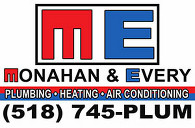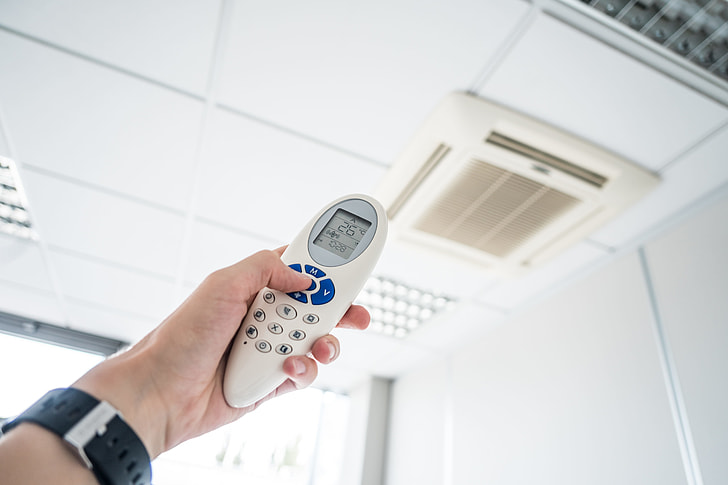

Call ME For All Your Plumbing and Heating Needs

Call Us For Free Estimates
Why Air Conditioner Maintenance is Key to Longevity and Optimal Performance
Air conditioning systems provide essential comfort during the hot summer months, offering cool relief in otherwise sweltering conditions. However, just like any other complex appliance, air conditioners require regular maintenance to ensure they function at their best, run efficiently, and last longer. Neglecting this upkeep can lead to reduced performance, increased energy consumption, and, in the worst case, complete system failure.

In this article, we will discuss why regular air conditioner (A/C) maintenance is crucial for your system’s longevity and optimal performance. We’ll explore how routine servicing can enhance energy efficiency, prevent major breakdowns, improve indoor air quality, and extend the life of your unit. By the end of this article, you’ll understand how simple actions like cleaning filters and checking refrigerant levels can save you money and stress over the years.
The Importance of Regular Air Conditioner Maintenance
Air conditioning systems, while generally durable, are made up of a series of intricate components that require routine care to perform at their best. Regular A/C maintenance helps ensure that these components—such as the evaporator and condenser coils, refrigerant lines, and compressor—are in good working order. Over time, without proper upkeep, these components can deteriorate, leading to poor system performance, higher energy bills, and potentially costly repairs.
Let’s explore the four key reasons why regular A/C maintenance is essential for your home:
1. Improving Energy Efficiency
A well-maintained air conditioning system uses less energy to provide the same level of cooling. When components such as filters, coils, and refrigerant levels are neglected, the system has to work harder to cool the air, leading to increased energy consumption and higher utility bills.
How Maintenance Improves Efficiency:
- Dirty Air Filters: One of the most common maintenance issues is clogged air filters. When filters are dirty, they obstruct airflow, forcing the system to overheat and use more power to produce cool air. Replacing or cleaning the air filters every 1-3 months ensures that air can flow freely through the system, reducing the strain on the unit and enhancing efficiency.
- Dirty Coils: Both the evaporator and condenser coils of an A/C system collect dirt over time. When these coils are dirty, they cannot effectively absorb or release heat, causing the system to work harder to cool the air. Regular cleaning of the coils improves heat exchange, allowing the unit to cool more effectively.
- Proper Refrigerant Levels: If your A/C system is low on refrigerant, it has to work harder to cool the air, consuming more energy. Checking and topping off the refrigerant annually ensures that your system runs efficiently and maintains the desired cooling performance.
Proper maintenance ensures that your A/C unit consumes less power while still providing optimal performance, ultimately lowering your monthly energy bills.
2. Prevention of Major Breakdowns
Regular maintenance can help catch small issues before they evolve into costly repairs or system failures. Small problems, such as a refrigerant leak or dirty evaporator coils, can cause a cascading series of malfunctions that put strain on the system and can lead to a complete breakdown.
How Maintenance Prevents Breakdowns:
- Early Detection of Leaks: During routine inspections, a technician will check for refrigerant leaks, worn-out seals, or damaged components that could compromise the system. Repairing these minor issues early can prevent major malfunctions that could lead to expensive repairs or a complete system replacement.
- Lubrication and Calibration: Components like the fan and compressor require regular lubrication to avoid unnecessary wear. Inadequate lubrication can cause parts to seize or malfunction, leading to a breakdown. Professional technicians will ensure that the moving parts are lubricated and calibrated properly during maintenance.
- Checking the Thermostat: A malfunctioning thermostat can cause the A/C to run inefficiently, or worse, fail to start altogether. Regular checks of the thermostat ensure that the temperature is accurately regulated, reducing the chances of an unexpected breakdown.
By identifying and addressing minor issues early, you can extend the lifespan of your air conditioner and avoid emergency repairs during the peak of summer.
3. Enhancing Indoor Air Quality
Air conditioners don’t just cool the air—they also help to filter out dust, pollen, and other allergens, promoting cleaner, healthier indoor air. When filters or the ductwork become clogged, your A/C system is no longer able to perform this function effectively, which can negatively impact your indoor air quality and exacerbate respiratory problems.
How Maintenance Improves Air Quality:
- Cleaning or Replacing Filters: Dirty filters are a significant contributor to poor indoor air quality. They trap dust, allergens, and pollutants but can only hold so much before they become clogged and ineffective. Regularly cleaning or replacing the air filters ensures that these contaminants do not circulate through the home.
- Cleaning Ducts: Over time, dust, debris, and even mold can accumulate in your ducts. If not cleaned, the A/C system will blow this dirt throughout your home, reducing air quality. A professional maintenance technician will inspect the ducts for signs of buildup and clean them to ensure fresh, clean air is circulated throughout your home.
- Humidity Control: Air conditioners also help regulate humidity. When humidity levels rise, they can contribute to mold and mildew growth in your home. Proper A/C maintenance, including checking the drainage and condensate system, ensures that moisture is properly removed, helping to maintain optimal humidity levels and prevent mold problems.
Maintaining clean filters and ducts helps your A/C system perform not just as a cooling unit but also as an air purifier, improving the overall air quality in your home.
4. Extending the Life of Your A/C System
Replacing an air conditioning system can be a significant financial investment. To get the most out of your current system, regular maintenance is key to extending its lifespan and delaying the need for an expensive replacement.
How Maintenance Extends A/C Life:
- Preventing Wear and Tear: Just like any other mechanical system, an A/C unit experiences wear and tear over time. By regularly servicing the system, technicians can catch problems early, ensuring that parts are replaced before they fail completely. Replacing components like capacitors or fan belts when they show signs of wear can prevent major breakdowns and extend the system’s life.
- Protecting the Compressor: The compressor is the heart of your air conditioning system. If it fails, the entire unit can be rendered useless. Regular maintenance, including checking the refrigerant level and ensuring that the compressor is functioning efficiently, helps avoid unnecessary stress on the compressor, which can extend the life of the unit.
- Reducing System Overload: A poorly maintained system works harder than necessary, causing undue stress on components. Over time, this strain can lead to system failure. Routine maintenance ensures that all components are functioning optimally, reducing the risk of system overload and extending the unit’s operational lifespan.
A well-maintained air conditioner can last between 15 and 20 years, whereas neglecting maintenance can result in the need for replacement in as little as 8-10 years.
Best Practices for A/C Maintenance
To keep your air conditioning system operating at peak efficiency, here are some best practices that homeowners should follow:
| Maintenance Task | Recommended Frequency | Reason |
|---|---|---|
| Replace or clean air filters | Every 1-3 months, depending on usage | Ensures proper airflow and improves air quality |
| Clean evaporator and condenser coils | Annually | Enhances heat exchange and system efficiency |
| Check refrigerant levels | Annually or if cooling performance drops | Ensures the system is operating at peak efficiency |
| Inspect ductwork for leaks | Every 2-3 years | Prevents energy loss and improves air quality |
| Inspect the thermostat | Annually | Ensures the system maintains accurate temperatures |
| Clean condensate drain | Annually or as needed | Prevents water damage and ensures proper humidity control |
Conclusion
Air conditioning systems play a vital role in keeping our homes comfortable, especially during the hot summer months. However, just like any other home appliance, they require regular maintenance to ensure they operate at their best. Proper care can lead to improved energy efficiency, better air quality, reduced chances of breakdowns, and an extended system life. By following the recommended maintenance practices and scheduling professional inspections at least once a year, you can keep your A/C running smoothly for many years to come.
A little effort in maintaining your air conditioner goes a long way in reducing energy consumption, improving comfort, and preventing costly repairs. Regular maintenance is not just about keeping the system running—it’s about making sure it works efficiently, saves you money, and keeps your indoor air clean and safe. Don’t wait for a breakdown to occur; be proactive and schedule your annual A/C maintenance today!

